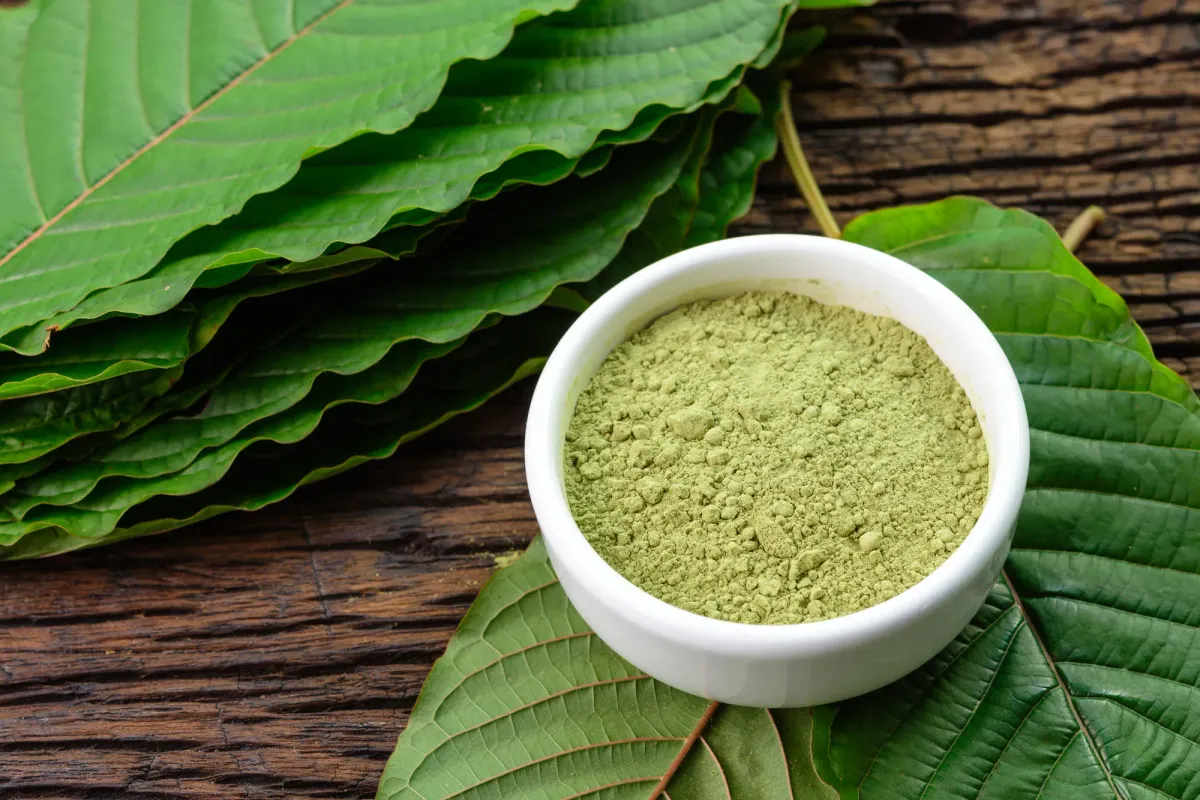Have you heard about Kratom? This trendy new substance is accessible anywhere from a gas station to your local grocery store. It comes in many forms from leaf, powder, capsule, edibles, tinctures and beverages. Kratom is everywhere, so it must be safe, right? What most people do not realize is unfortunately that is not the case.
What is Kratom?
Before we dive into the dangers, what even is Kratom? This substance is derived from a tropical plant native to Southeast Asia called Mitragyna speciosa, and has been consumed by humans as an herbal remedy for thousands of years by chewing on the leaves and smoking it. People discovered its use for pain management and cognitive enhancement.
When it comes to the scientific component, there are two primary active compounds in Kratom which are mitragynine and 7-hydroxymitragynine. These both interact with the brain’s opioid receptors and can produce both stimulating and sedative effects depending on the dose. The concerning factor is they act as a naturally occurring opioid.
The Appeal
What has drawn so many people to begin using Kratom? There are multiple intriguing reasons that have made this such an alluring substance to use.
Kratom products will claim to have must try benefits such as improved mood, increased energy, better alertness, and more talkativeness. They will also tell you that Kratom can decrease your anxiety and depression.
There also has been a significant increase of Kratom usage since the opioid epidemic. People have often used it for opioid withdrawal, and have turned to it as a cheaper, more natural way than medication management.
Truthfully, all of these make Kratom sound like a somewhat magical substance, however there are significant risks and dangers that must be addressed.
Potential Dangers and Risks
- 1. Addiction and Dependence: While Kratom is often promoted as a natural, non-addictive substance, evidence suggests otherwise. Kratom can have addictive qualities, in which regular use can lead to physical dependence, which then can lead to withdrawal symptoms similar to those of opioids. Users may find themselves needing increasingly larger doses to achieve the same effects, leading to a cycle of addiction and dependency.
- 2. A Few of the Potential Health Risks:
- Cardiovascular Issues: High doses of Kratom can cause elevated heart rate and blood pressure, potentially leading to serious cardiovascular problems.
- Liver Damage: There have been reports of liver toxicity associated with Kratom use, with symptoms including jaundice and liver enzyme abnormalities.
- Psychological Effects: Kratom can cause mood swings, anxiety, and hallucinations, especially at higher doses. Long-term use may exacerbate mental health issues or create new psychological problems.
- 3. Unregulated Nature: Kratom is not regulated by the FDA, meaning there is a gambling risk with each dose. This lack of regulation can lead to contamination with other substances or inconsistent potency, increasing the risk of adverse effects. You truly don't know the exact dosage being consumed, or what exactly you are consuming.
- 4. Drug Interactions: Kratom can interact with other medications, potentially leading to dangerous side effects. Combining Kratom with other substances, particularly those that affect the central nervous system, can be particularly hazardous.
What to Do if You or Someone You Know is Struggling
The Redpoint Center has been seeing more and more people seeking treatment for Kratom addiction and abuse. We are here to help! We can provide guidance, treatment options, and support to manage withdrawal symptoms and work towards recovery.
If you found this information useful, please share it with others who might benefit from understanding the risks of Kratom. For those seeking more information or help with addiction, please reach out to The Redpoint Center.
